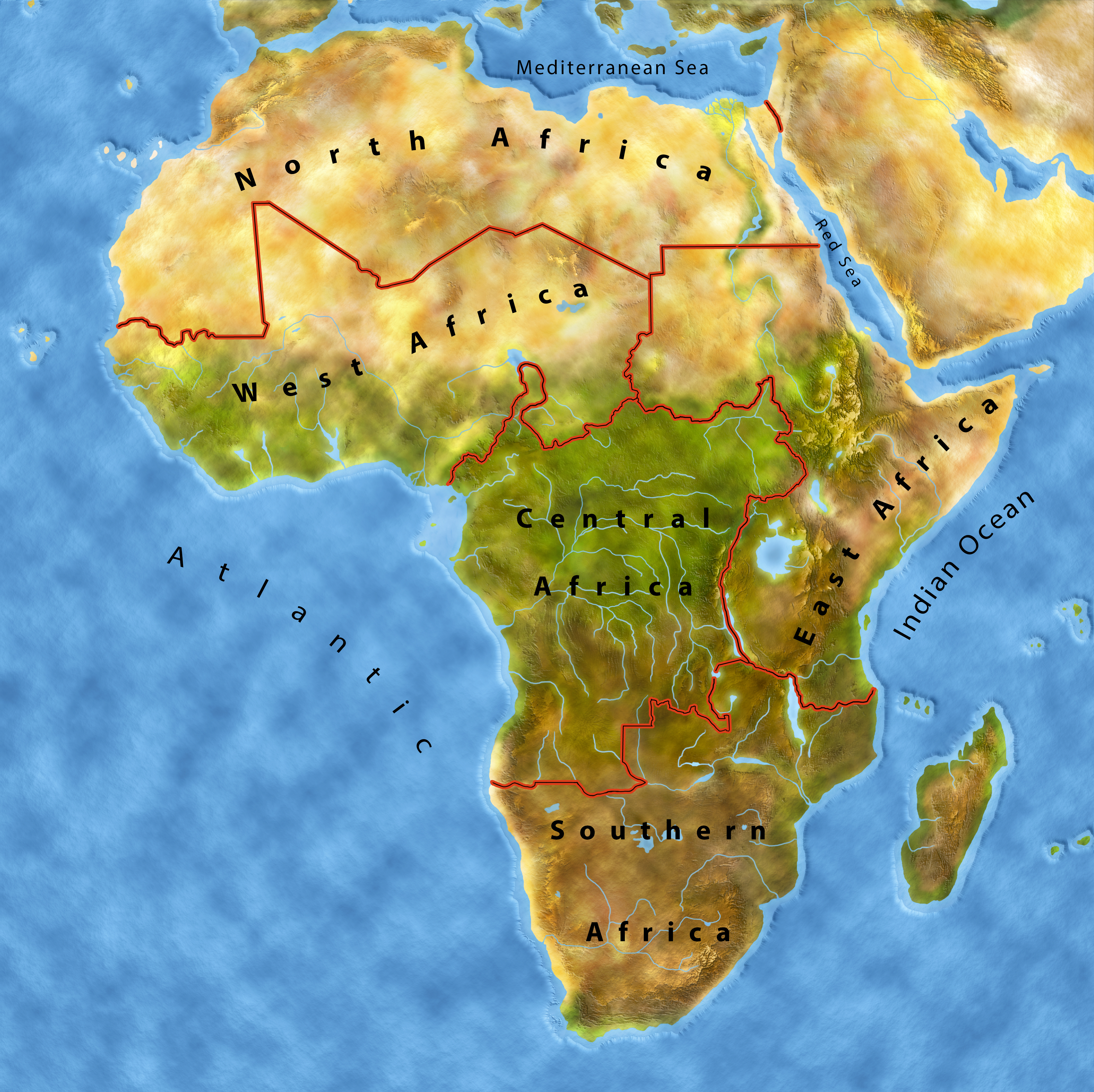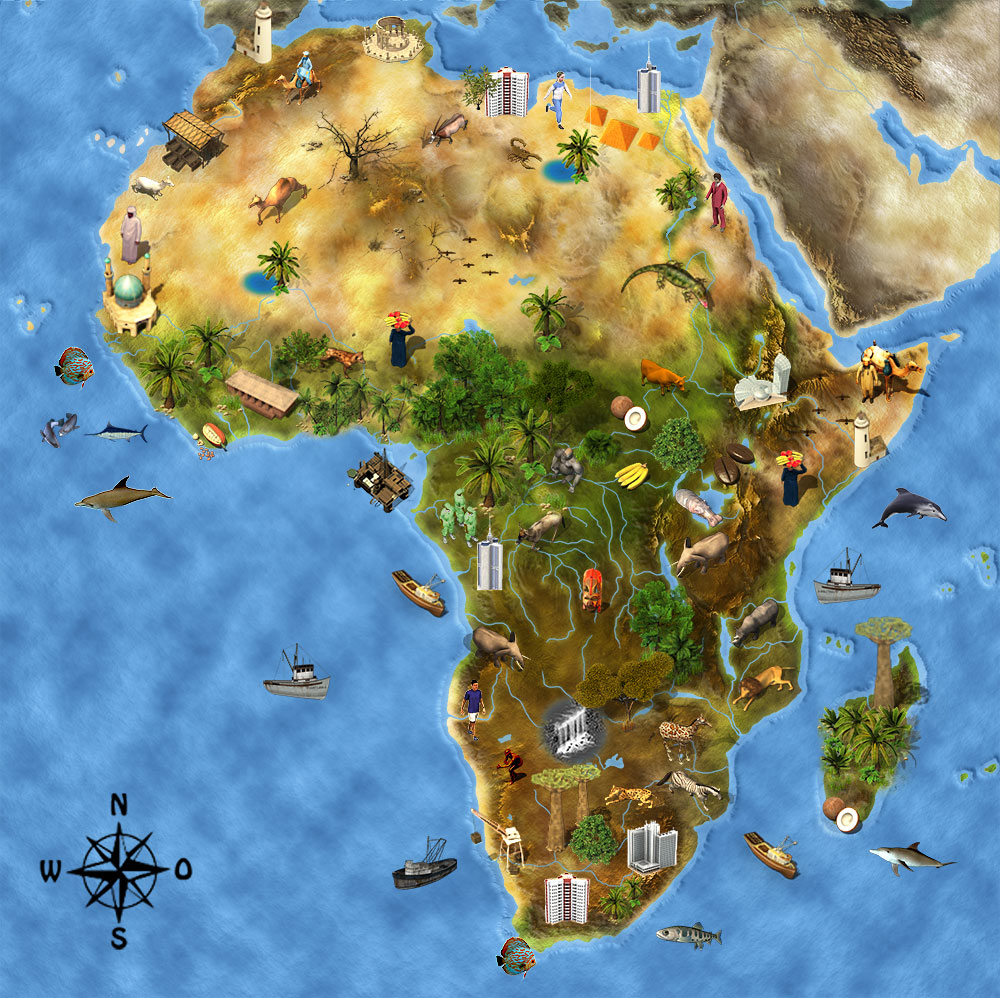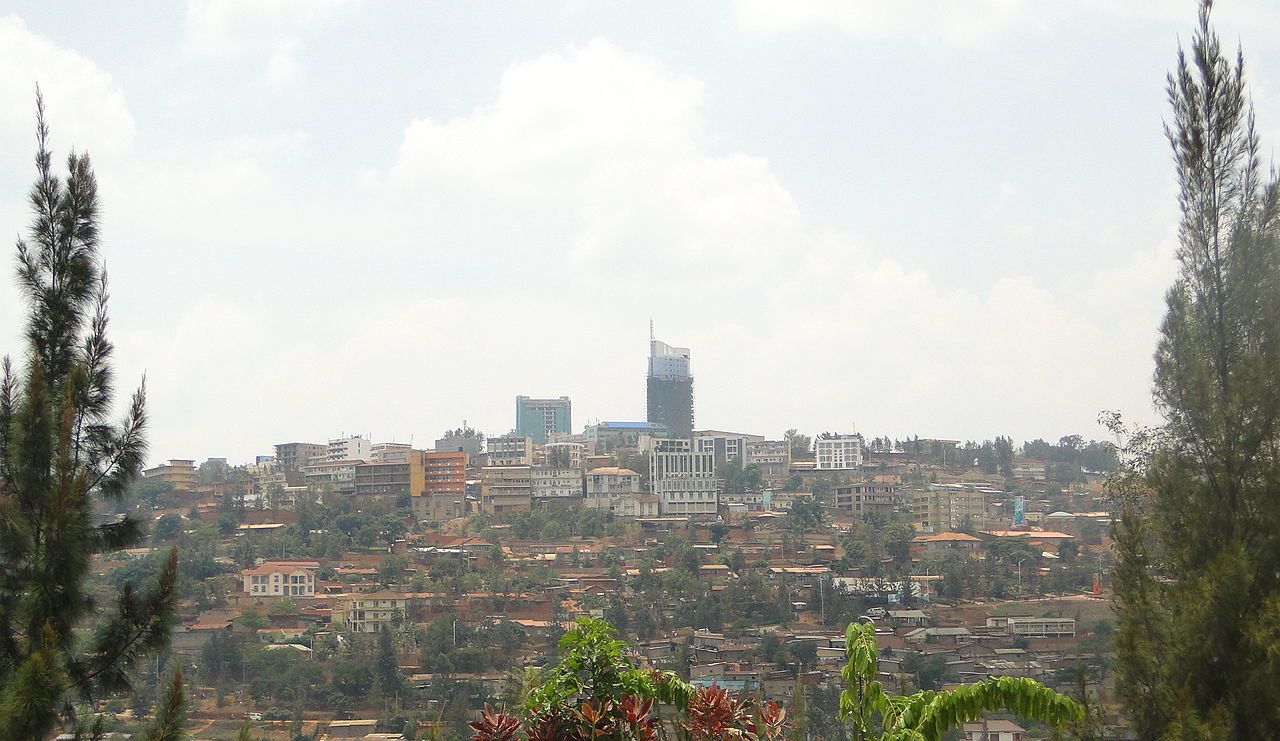Bonjour, welcome to Rwanda, the jewel in Africa’s crown.
Rwanda is a small, beautiful country in east Africa. Because of its impressing landscapes it was called "Africa's Crown".
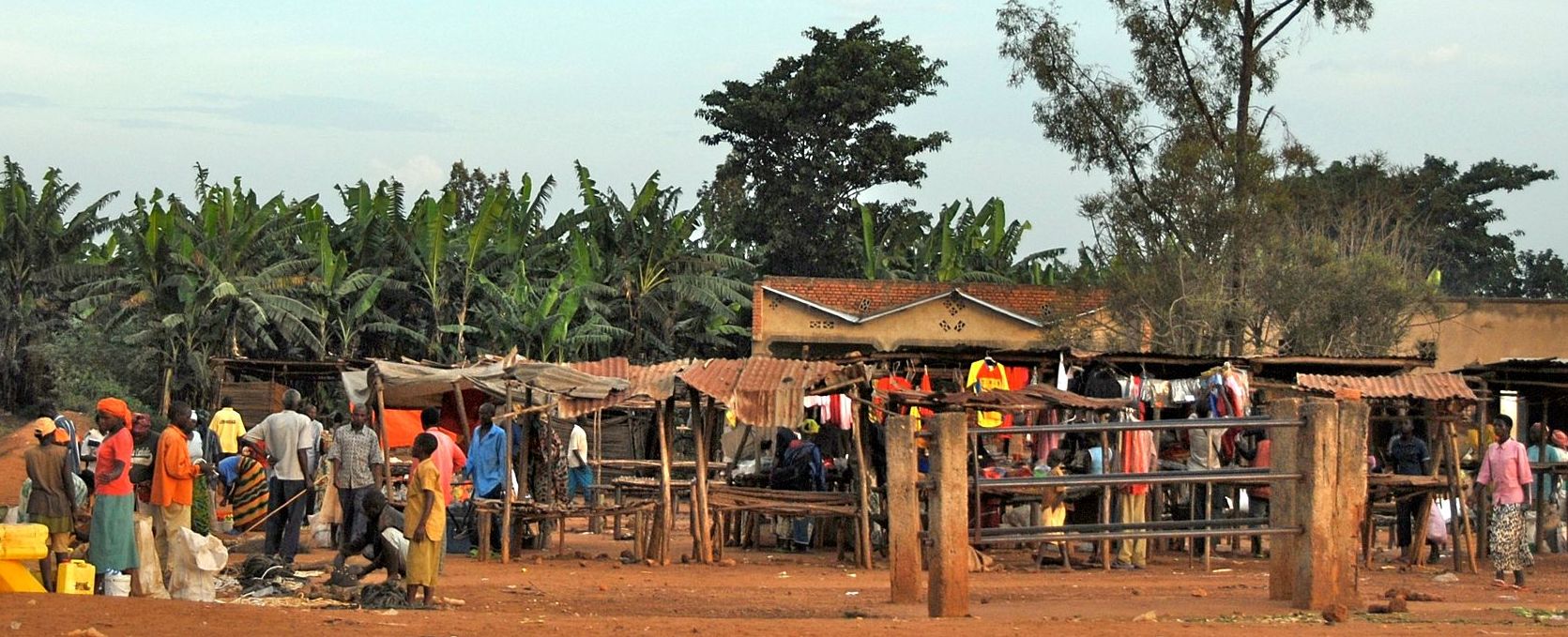
Rwanda is a landlocked country with no access to the sea. However, Lake Kivu in the west provides the country with a long coastal strip, forming a natural boundary to the Democratic Republic of the Congo. This is also where the 3-4,000 meter high watershed runs between the drainage basins of the Nile and Congo rivers. The Nile runs along the east side of the mountain range and on the west side water runs from the mountains into the Congo River. To the north of Rwanda is Uganda, to the east, Tanzania. The south of the country shares its border with Burundi. Rwanda and Burundi are almost the same size and are agriculturally very similar. The ethnic groups inhabiting the highlands between Lake Victoria and Lake Kivu are also the same. The Hutu and Tutsi share a both notable and gruelling history.
Landscapes

Rwanda is known as “the land of a thousand hills” because it is primarily formed of undulating highlands. This small country is characterised by the amazing variety of its landscape. The volcanic Virunga Mountains are located in the north of the country. Some of these are active, but many are dormant, such as the 4507 metre high Mount Karisimbi. In the east the landscape is characterised by picturesque savannahs while the area near Lake Kivu boasts enchanting tropical mountain rainforests. Rwanda may not have its own coastline, but it does have one of the most beautiful inland lakes in central Africa. Kayak tours and windsurfing can be enjoyed on Lake Kivu. Rwanda is home to the source of the largest rivers in the world - the Nile and the Congo. Mont Kabuye and Mont Rebero along with the areas around Lakes Burera and Ruhondo are some of Rwanda’s most beautiful regions.
Kigali, Rwanda's Capital
Kigali was founded in the 19th Century by a German resident between the river valley of the Nyagborongo and the Jali and Kigali mountains. The Kigali Mountain shares its name with the city itself. Rwanda’s capital has over a million inhabitants. The government is seated here and there is an international airport. It is possible to depart from Kigali and travel by bus in all directions across the country.
Peoples and Languages
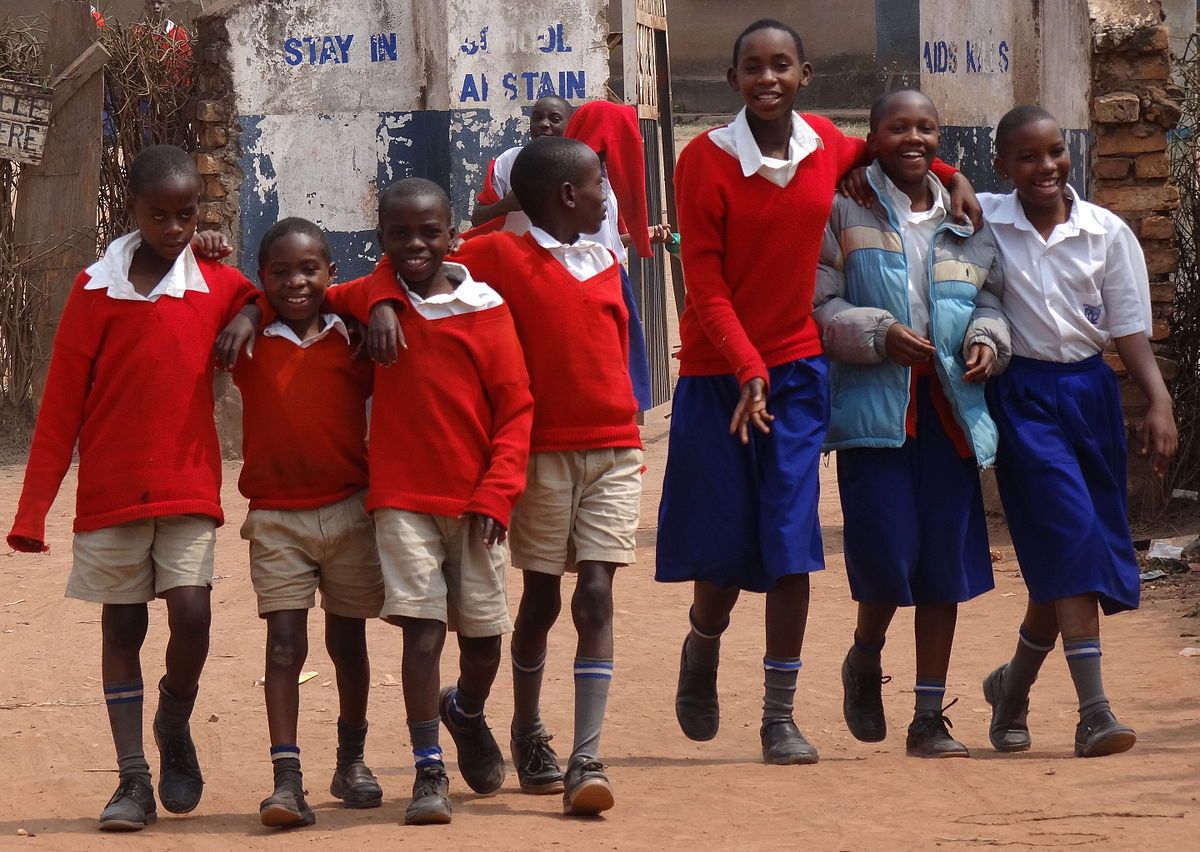 There are three main ethnic groups living in Rwanda - the Hutus, the Tutsis and the Twa. The Hutus and the Tutsis speak the same Bantu language known as “Kinyarwanda”. In 2008 English was made the official language in Rwanda, before that it was French. The Hutu and Tutsi, once enemies, share the same culture and the same history. They also share the same religious beliefs. The influence of German colonisation means the population is primarily Catholic. However the old African system of belief also still continues to be observed by almost everyone. People of the Islamic faith are usually only found in the cities. In the picture on the right you can see a bridal couple from a village in Rwanda. Hutu Michael and his Tutsi girlfriend have just said “I do” in front of the whole village. Like this couple, more and more young Rwandans are denouncing the former animosity between these two ethnic groups.
There are three main ethnic groups living in Rwanda - the Hutus, the Tutsis and the Twa. The Hutus and the Tutsis speak the same Bantu language known as “Kinyarwanda”. In 2008 English was made the official language in Rwanda, before that it was French. The Hutu and Tutsi, once enemies, share the same culture and the same history. They also share the same religious beliefs. The influence of German colonisation means the population is primarily Catholic. However the old African system of belief also still continues to be observed by almost everyone. People of the Islamic faith are usually only found in the cities. In the picture on the right you can see a bridal couple from a village in Rwanda. Hutu Michael and his Tutsi girlfriend have just said “I do” in front of the whole village. Like this couple, more and more young Rwandans are denouncing the former animosity between these two ethnic groups.
Family and Networking

Extended families are a central part of Rwandan society. They protect the poorest in society against impoverishment and starvation by providing an important family-based safety network. The average Rwandan family has five children. Children are seen as a blessing. The more children a woman has, the more respected she is. Children are able to help both in the household and on the land and later on they contribute to their parents’ retirement provision. Women carry the main burden of the family farming business. They are responsible for providing sustenance and for bringing up the children. The separation between men and women is still very strict in traditional, rural communities. It is not acceptable for women to be seen in public and either their husband or father usually controls them. Women are not supposed to speak of their own accord. This tradition is changing, but only very gradually.
Schools and Education

Celebrations and Festivities
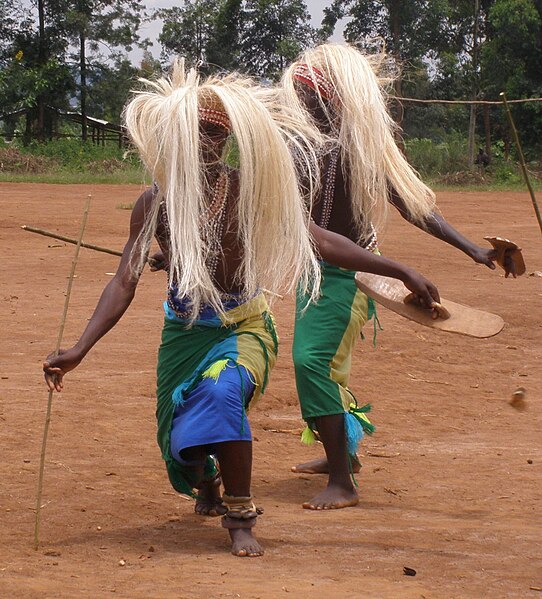 Rwandans celebrate the main Christian festivals like Christmas and Easter whilst also observing traditional ancestral festivities. On joyful occasions they throw spontaneous parties to celebrate. They dance, clap, sing and bang their drums. At family parties traditional dance music is played and joined by singing, drumming and bell ringing. Some of Rwanda’s most famous performances are the traditional male and female dances. Women perform the Umushagiriro, a slow dance accompanied with a hymn of praise for their livestock. The men dance the Ikinimba, presenting everyday issues. The climax of the occasion is the impressive Intore war dance which you can see in the picture to the right. The drumming spectacle Ingoma attracts thousands of visitors to the event. For many years Rwandans have celebrated the Kwita Izina, a special celebration which only exists in Rwanda. This celebrates the baptism of a gorilla. On the backdrop of a large folk festival with visitors from all over the world, new-born gorillas are symbolically baptised. Every baby gorilla is given a name and a sponsor. The ceremony is an unforgettable experience because it demonstrates how strongly the Rwandan population is connected with nature and the last surviving mountain gorillas. Many well-known personalities from all over the world take part in the ceremony including Rwanda’s president. Kwita Izina takes place in summer every year and each time the ceremony focuses on a different issue. Particular appreciation is shown to local environmentalists and their work. The event is organised by communities situated around the Volcanoes National Park.
Rwandans celebrate the main Christian festivals like Christmas and Easter whilst also observing traditional ancestral festivities. On joyful occasions they throw spontaneous parties to celebrate. They dance, clap, sing and bang their drums. At family parties traditional dance music is played and joined by singing, drumming and bell ringing. Some of Rwanda’s most famous performances are the traditional male and female dances. Women perform the Umushagiriro, a slow dance accompanied with a hymn of praise for their livestock. The men dance the Ikinimba, presenting everyday issues. The climax of the occasion is the impressive Intore war dance which you can see in the picture to the right. The drumming spectacle Ingoma attracts thousands of visitors to the event. For many years Rwandans have celebrated the Kwita Izina, a special celebration which only exists in Rwanda. This celebrates the baptism of a gorilla. On the backdrop of a large folk festival with visitors from all over the world, new-born gorillas are symbolically baptised. Every baby gorilla is given a name and a sponsor. The ceremony is an unforgettable experience because it demonstrates how strongly the Rwandan population is connected with nature and the last surviving mountain gorillas. Many well-known personalities from all over the world take part in the ceremony including Rwanda’s president. Kwita Izina takes place in summer every year and each time the ceremony focuses on a different issue. Particular appreciation is shown to local environmentalists and their work. The event is organised by communities situated around the Volcanoes National Park.
Economy and natural Resources
The majority of the Rwandan population makes a living from agriculture. One of the world’s highest quality coffee plants is cultivated in Rwanda. The climate also allows for excellent harvests of tea. Tobacco, soap, cosmetics and textiles are manufactured in Rwanda too. A construction boom has occurred in Kigali, the capital city. Fancy hotels and office spaces are being built in record time. Mobile telephone companies spring up from nowhere like weeds - everyone wants a mobile phone. Coltan, the basis material for producing mobile phones, is exported to other countries. Despite many still being unemployed, Rwanda’s economy is growing.
Wildlife
 The last living mountain gorillas have made the country internationally famous, as the spectacular film “Gorillas in the Mist” demonstrates. The closest relatives to humans can be found and observed on guided walking tours through the Volcanoes National Park in Rwanda. In the paradise of the Nyungwe National Park mountain rain forest, chimpanzees, colobus monkeys, green meerkats, baboons and many other types of rare primates can be spotted. Brightly coloured birds nest in this environment like the dazzling Ruwenzori Turaco, the rare hornbills and sunbirds and the African hummingbird. In Rwanda you can even go on safari. In the Akagera National Park giraffes, hippopotami, leopards, and antelopes are a feature of the landscape.
The last living mountain gorillas have made the country internationally famous, as the spectacular film “Gorillas in the Mist” demonstrates. The closest relatives to humans can be found and observed on guided walking tours through the Volcanoes National Park in Rwanda. In the paradise of the Nyungwe National Park mountain rain forest, chimpanzees, colobus monkeys, green meerkats, baboons and many other types of rare primates can be spotted. Brightly coloured birds nest in this environment like the dazzling Ruwenzori Turaco, the rare hornbills and sunbirds and the African hummingbird. In Rwanda you can even go on safari. In the Akagera National Park giraffes, hippopotami, leopards, and antelopes are a feature of the landscape.
![]() More about the animals of the savanna
More about the animals of the savanna
History

This country in the heart of Africa offers its visitors peaceful villages, lively towns and picturesque landscapes. It is difficult to imagine that only 20 years ago, one of history’s most terrible instances of genocide took place in Rwanda. How did this happen? The reasons are as old as the legendary Kingdom of Banyarwanda.
![]() More on the hiistory of Rwanda
More on the hiistory of Rwanda
Rwanda Today
The ethnic groups Tutsi and Hutu endured many struggles in order to be reconciled. Peace talks were carried out, disputes resolved, and memorial sites were constructed. The demons of the past have been conquered. Politicians have formed a balanced government which involves all Rwandan citizens in its decisions. After 17 years of peace, the country is experiencing an upswing. New roads are being built and cities are being modernised. Above all, education is significantly supported. Besides western knowledge, also the old African traditions are and heritage is also being maintained.



